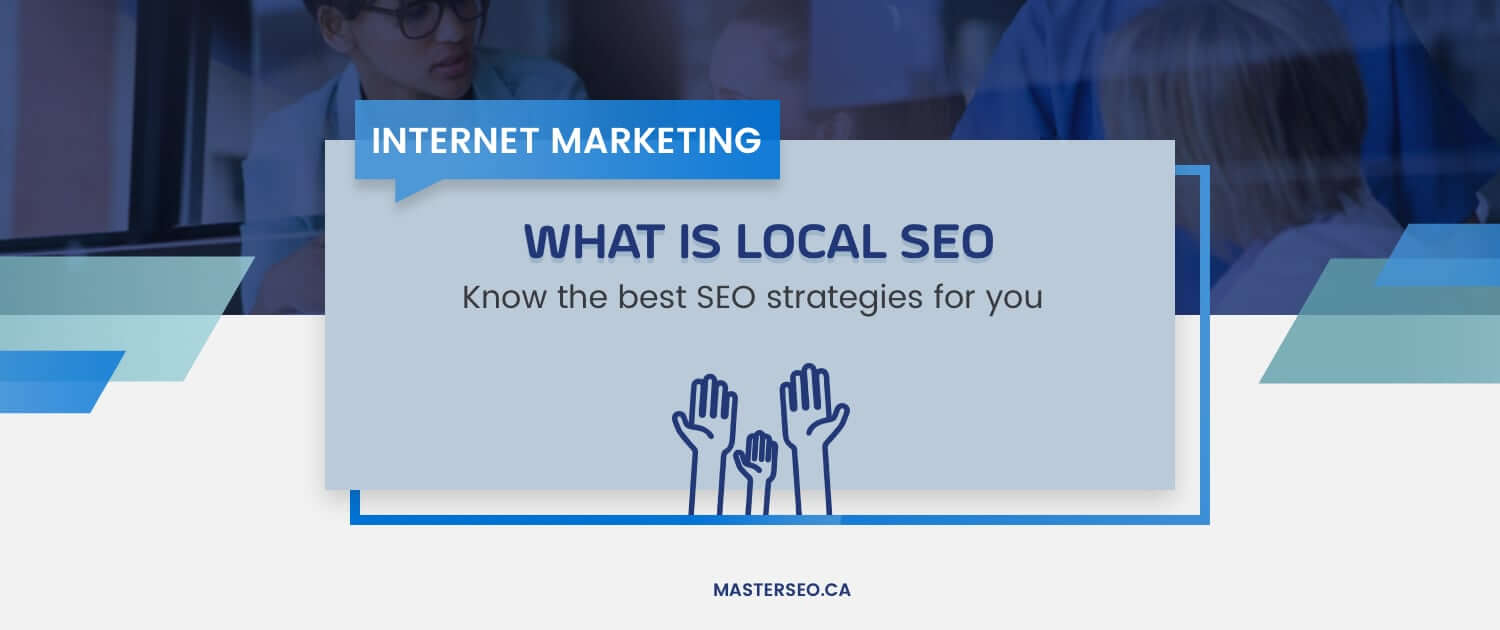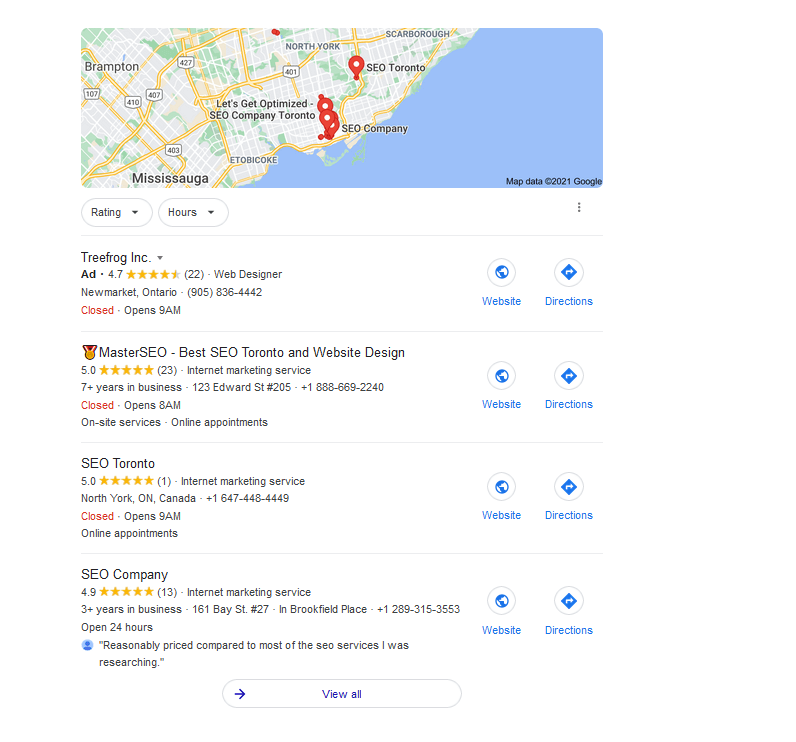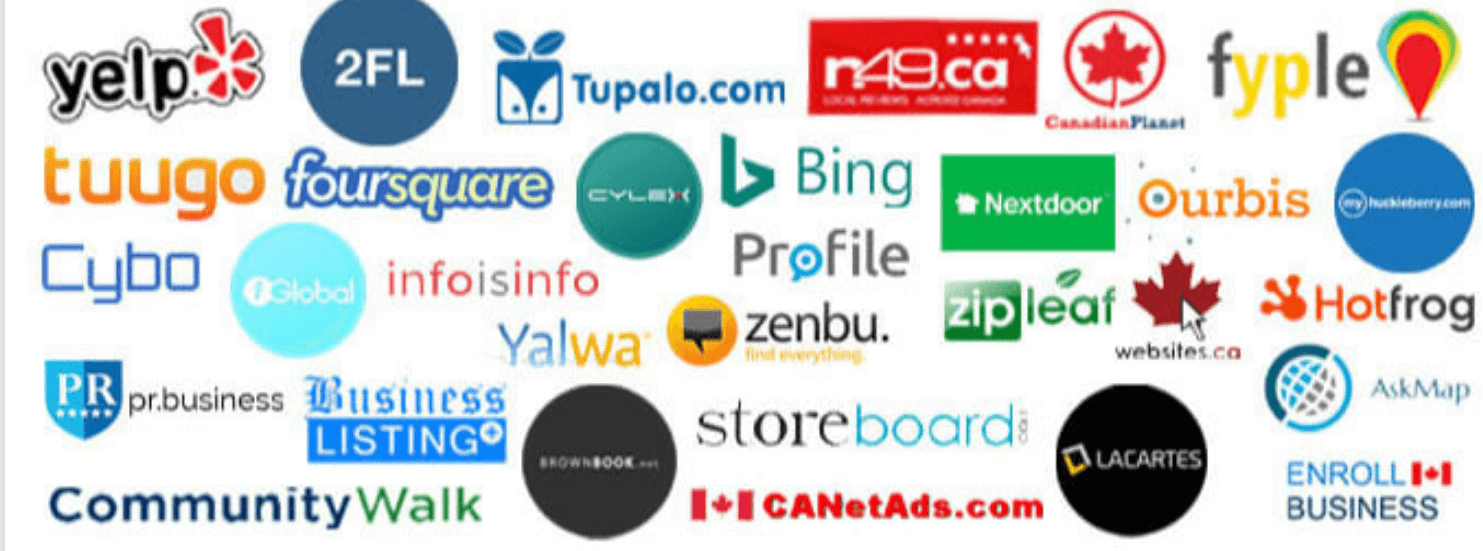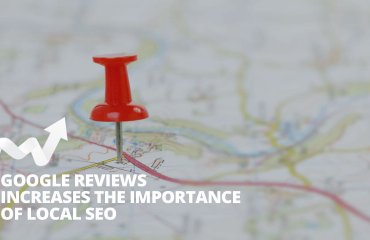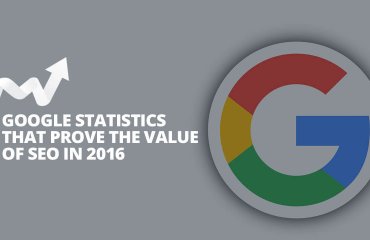Google ranks higher websites with higher scores that are more relevant to their users. And this is what you want, right? To be on the first page of Google for your industry and increase your online visibility. The truth is that if you want to rank higher in Google, then you must do Local SEO.
Local SEO is the process of optimizing your business website for location-based search engines. It’s about making sure that your business appears in TOP when somebody searches for it in their area. Local SEO is especially important if you’re a brick-and-mortar business or offer local services like cleaning or handyman work.
Any business that has a physical location and serves a geographical area can benefit from local business SEO.
- Increases a company’s chances to get noticed by showing up in more localized searches
- High ROI
- Locals who live close to you are more inclined to buy from a vendor they know
- Reduce cost for advertising
- Improves your operation efficiency
- Increases sales
Table of Contents
What’s the difference between Local SEO and SEO?
While traditional SEO focuses on improving your site’s visibility on a national or global scale, local SEO allows you to cover the local search area to connect with search queries in your region. SEO and local SEO use many of the same strategies for organic search results.
Who does Local SEO attract?
Local SEO attracts the customer that is looking for a business in their locality. In this day and age, where people have to deal with a lot of traffic and transportation issues, they often avoid going to a place not close to them. Local SEO has been crucial in marketing since it allows businesses to compete locally rather than regionally or nationally. Local SEO started as something small but has grown rapidly in recent years due to an increasing need for localized information about businesses.
What is a Local search?
Local search is the process of searching for a specific product or service that allows users to send geographically limited queries in a structured database of local business listings. It’s based on proximity, cost, convenience, and availability.
What are Local SERPs?
Local Search Engine Results Pages (SERPs) is when your business appears when someone searches in Google regarding the location of your business.
The goal in local SEO is to drive more relevant traffic to your listing or website. You can do this by improving your search rankings through local SEO.
Local map pack vs organic results
Both are displayed at the top of the page, and both are triggered by a localized search query. The Google homepage displays various types of search results – paid ads, package results, and organic results are just some of them. No doubt you’ve seen these different results when running your own Google search queries.
- Local pack results are also called “3 pack” or “Snack Pack” because there are three map listings that appear at the top of Google’s search results, above the organic listings. Opening hours, the contact information of each business are indicated on the map, as well as customer reviews, which are extremely important for this section of the website.
- Organic results are the listings that appear directly underneath the map pack results. The most optimized/relevant listings appear first, so use local SEO marketing techniques to optimize your business website if you want them to show up on top.
How Does The Google Local Search Algorithm Work?
The local algorithm (a.k.a. Google Places algorithm) is a ranking factor that Google considers when showing the results of a user query in various regions. The algorithm assigns a score to each listing and displays the ones with the highest scores first, depending on the search type and location of the searcher.
Google Local Relevance
This is the most important local ranking factor. A page’s relevance determines its rank in the SERPs, so it’s imperative to have a high Local Relevance score. The way it works is that Google extracts the user’s location and then displays results that are relevant to that area. For example, if someone in Toronto searches for “pizza,” Google will show results for pizza restaurants in Toronto. If someone searches for “pizza” in Ottawa, Google will show Ottawa-based pizza restaurants. This relevance score is based on the types of business you want to rank for.
Google Local Prominence
This is the next most important local ranking factor. Prominence is also based on Google’s information about a business from across the web (like links, articles, and directories) to determine how well it stands out. Usually, the results are displayed in order of highest prominence, so it’s essential to have a high Prominence score to show up on top.
- the query
- the searcher’s location
- the relevance to the query
- and the prominence of the business
Google Local Proximity
The third important local ranking factor is the proximity of a business, and it is based on the business address. The business close enough to the searcher will be considered to be a good answer for their query. In other words, if you were to ask for pizza near me, these businesses are the ones that the algorithm would favour.
Identify Keywords for Local SEO
There are several keywords that a business can use to improve its local SEO. The main task is to find the keywords relevant to the business and ensure they are used regularly – every time a local search is done for this type of business in a specific region. To gain higher rankings in this area, you should do the following:
1. Identify the keywords relevant to your business through SEO tools.
2. Do competitive research to determine the most promising ones.
3. Incorporate them into your website service pages.
Extend your core terms with keyword modifiers.
The more specific keywords you have, the better your campaign will be. Use long-tail keywords whenever possible. When it comes to local keyword research, we usually have to deal with a combination of three parts:
Core term + Modifier + Location.
Core Term
This is what you are doing or selling, at its “core.” If you are doing marketing for a local pizza restaurant, then your primary category of the local search query is “pizza,” “best pizza,” “Detroit-style pizza,” etc. If you are promoting a dentist, your core terms are “dentist,” “dentistry,” “dental clinic”… Well, you got an understanding.
Modifier
This is what makes your core term more specific and makes your business more unique. For example, may be “best pizza near me” and “find a pediatric dentist.”
Locations
This is the final piece of local SEO keywords, and it refers to your business location. For example, “best pizza in downtown” or “find a pediatric dentist in Mississauga.”
Why do you need Google My Business profile?
A business listing on Google My Business is crucial for Local Search Marketing. Google wants to include information that helps users choose the right business, so they rank the most relevant pages higher. For businesses with a physical location, this is a great way to promote their products or services among potential customers. By adding more content and images to your business listing, you can expand your presence on the web and appear more professional and trustworthy, which will help Google’s algorithms better determine your relevance in local search results.
Google My Business features overview
The key to overperform your competitors in the Local Package is using and testing the Google My Business features. With that in mind, here are eight Google My Business profile features that every local business should take full advantage of:
-
Google My Business Categories
It helps Google understand the core of your business to display your Google My Business listing for the most relevant search terms. Provide additional categories that may be relevant to your business. The more detail you provide about your business category, the more information Google will pull up for its users.
-
Google My Business Description
Add detailed business information and keywords that are specific to your company. This will enable you to rank for more detailed terms that your competitors may not be optimizing for. Include site features, business hours, services, events and staff contact information to help improve your local search optimization.
-
Google My Business Posts
This is where you can add your blog content. Each “Post” is a simple field in your profile containing an image, text and a call to action, and they are usually about the same length as a tweet. They exist so that you can make announcements about new products, services or even just be a little companionable.
-
Google My Business Photos
This is where you can upload images of your products or services. You can even upload 360-degree photos (like Virtual Reality) to create an immersive experience for the user. This feature allows your business to stand out from the crowd.
-
Google My Business Reviews
This is another way to differentiate your business. You can inspire customers to leave reviews by offering discounts or coupons to customers with positive reviews. The more positive reviews you have, the more trust you will get among potential customers.
-
Google My Business Q and A
This is where you can answer any of the questions that users may have before they visit your business. This feature also allows Google to display more information about your business in the Knowledge Panel, which appears when people search for your keyword or use the “Send Feedback” button on Google Maps.
-
Google My Business Book an Appointment
This allows users to book appointments with their business directly from the Google Maps page. This is an excellent feature if you want to promote your business as a “one-stop-shop.”
-
Google My Business Messaging
This is where you can create a message for users about your business. If you are running a café or store, then this is the perfect way to communicate with visitors. It can also be used for customer service issues.
-
Google My Business Short Name
This is where you can create a short name for your business. When people search for your business, this is the name they will see. In today’s world, having a good short name can make or break your listing because it has to be easy to remember, and it has to look good in the search results.
Local Citations
The benefits of citation building are similar to the benefits of building a solid local SEO campaign, which is why it’s so important to have a well-oiled citation building machine in place. Citing your business on other well-respected websites or online directories builds trust, and trust is a necessity when people search for local businesses.
Benefits of citation building:
- Citation building increases the ranking of your business in Google Maps.
- Citations for your business in other well-respected websites build trust in your business.
- Citation building helps your customers find you in their search results.
Ongoing citation building and management
Ongoing citation building is necessary to keep your business’s citations accurate and up to date, but it can be time-consuming. You need to know how many citations your business currently has so you can determine the number of citations still required. Citations are also checked periodically to make sure they are up-to-date. Next, you need to know the purpose of each citation so you can determine if it needs updating or editing. This is where choosing the correct source for your citations will come into play.
Building citations yourself
You can build citations yourself, or you can let an online citation tool do it for you. If you choose to build the citations yourself, start by finding a local citation source. Then, collect the information from each of these sources, which is usually referred to as a “cited website” data sheet format. Once you have your datasheet, record it into a spreadsheet. After that, decide if your business needs one or more citations and then create a list of the required citations.
Using a manual service
If you choose to use a manual service-based online citation tool, then your company should be able to provide the necessary information for it to build citations. The citation services will also need access to your website, which means you will not be able to maintain ownership of the citations. It’s helpful if you can provide this information in a standardized format so it can be transferred over to the service-based citation tool.
Using an API provider
You can also let an API provider build your citations for you. The benefit of using an API is transparency because everyone will know where these citations originate from. You can even set up a dashboard that allows you to manage the accuracy of the citations that you have received.
Using data aggregators
Data aggregators are one of the most popular tools for local businesses because they are easy to use. However, it’s essential to understand that these are not high-quality citations. Data aggregators will only provide the bare minimum, so you do not get the same professional results that you would get by using a manual service or an API provider.
Online Reviews
Why do local businesses need online reviews?
Online reviews are a fundamental component of the customer experience. They provide customers with honest feedback about your business.
The benefits of online reviews for local businesses:
1. Reviews help increase the engagement of the customers who are actively using your product or service. This leads to higher conversion rates.
2. Negative feedback can also be precious if it provides constructive criticism about the product or service you offer, which helps you improve what you do.
3. Positive reviews can be used as a marketing tool to promote your business.
Getting more online reviews
From posting a positive review about a local business to publicly shaming a business owner, online reviews have become a democratic process determining where we spend our money and whether we will open our wallets again.
How to increase the number of online reviews?
First, gain trust from your customers. Customers will be more inclined to leave a review if they trust you and feel comfortable doing so. The next step is to ask for reviews. This can be done in person, over the phone, or on your website. The last step is to respond to each review left for your business. This shows that you are taking what customers have to say into consideration and making improvements based on comments made by those who take the time to leave a review.
What to do with online reviews?
Online reviews provide both business owners and customers with opportunities that can be used to improve the customer experience:
1. Use the reviews to improve your service and product quality.
2. Reward reviewers with discounts, promotions and prizes.
3. Take action on the negative reviews by improving your customer service and appealing to customers who might have a bad experience.
On-site SEO
On-site SEO may refer to the process of improving a website’s usability through the use of relevant content, blog posts, image alt tags, H1 and H2, H3 headings and internal links.
Website localization
Website localization is simply meant to target local customers by creating a localized version of your website. A lot of localization service providers offer several different types of translations for your website. They will let you choose the type of translation you want and offer you numerous ways to improve your site.
On-page optimization
These are the most common web design tips that will help your website rank in local search. Following these tips will help you rank better in local search than other competitors in your industry that do not follow them:
Optimizing for mobile
Did you know that 77% of consumers will abandon a website if they cannot easily access it on their mobile devices? Local search and mobile search go hand in hand. That’s why optimizing your website for smartphones is an essential part of your marketing efforts. Mobile optimization is a process that allows your site to look great on mobile devices, including smartphones and tablets. It also includes optimizing your website for text size, layout and colours to make sure that your site is mobile-friendly. If you don`t have developer you can find experienced WordPress Development Companies here.
Improving site speed and technical SEO
Your website should be fast to rank in search engines. A slow page loading speed will be a significant problem in ranking in the search results because Google has confirmed in recent tests that slow site speed can have a negative impact on rankings. Technical SEO refers to technical changes that you can implement to increase your position in the search engine results.
Google’s ‘Core Web Vitals’
It is a set of user-oriented metrics designed to measure the “health” of a page to ensure a smooth and seamless user experience. These indicators consist of three components: content loading speed, interactivity and visual stability.
Local Link Building
Why is local link building worth your time?
Local link building is considered one of the most effective ways for local businesses to attract customers, especially when done right. It is one of the primary keys to increasing your website’s ranking in search engine results. This type of link building is typically the most effective way to attract new customers. It includes creating, curating and sharing local content with your target audience through forums, websites, blogs etc.
How does local link building differ from standard link building?
It is the same as standard link building, with the difference being that it is intended for local businesses to reach their target audience. Standard link building is intended for different companies to reach their target audience, whereas local link building is intended for local businesses to reach customers specifically in their area.
Local sponsorships
Local sponsorship involves partnerships with local organizations, where each party receives a certain profit. The biggest pros are establishing long-term and promising partnerships, presenting your company to a potential audience, and establishing local media contacts.
Local events
Managing your own event is a lot of work, but it is certainly worth the investment if done correctly. Depending on your area of expertise, there should be a lot of industry press interested in previewing and covering your event. Provide links to the page of your event/ticket, as well as to your root domain.
Local scholarships
Creating links to scholarships is when you build a page on your website to promote a scholarship or scholarship fund and encourage educational institutions with domains “edu” to link to it from their scholarship portals.
Local connections
Networking, you simply ask for a link to your site from the people you know in your industry. You can contact people you know via LinkedIn, Facebook and even email, which dramatically ease your SEO efforts.

